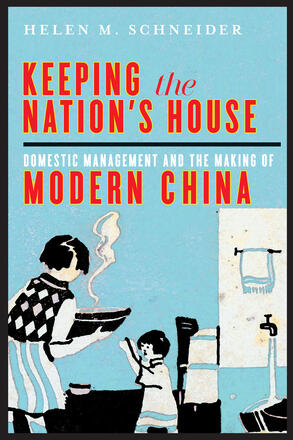
Keeping the Nation's House
Domestic Management and the Making of Modern China
A groundbreaking account of the elite Chinese women – home
economists – who helped to build modern China one family at
a time.
Description
The term home economics often conjures images of sterile
classrooms where girls learn to cook dinner and swaddle dolls, far
removed from the seats of power. Helen Schneider unsettles this
assumption by revealing how Chinese women helped to build a nation, one
family at a time. From the 1920s to the early 1950s, home economists
transformed the most fundamental of political spaces – the
home – by teaching women to nurture ideal families and
manage projects of social reform. Although their discipline came undone
after 1949, it created a legacy of gendered professionalism and
reinforced the idea that leaders should shape domestic rituals of the
people.